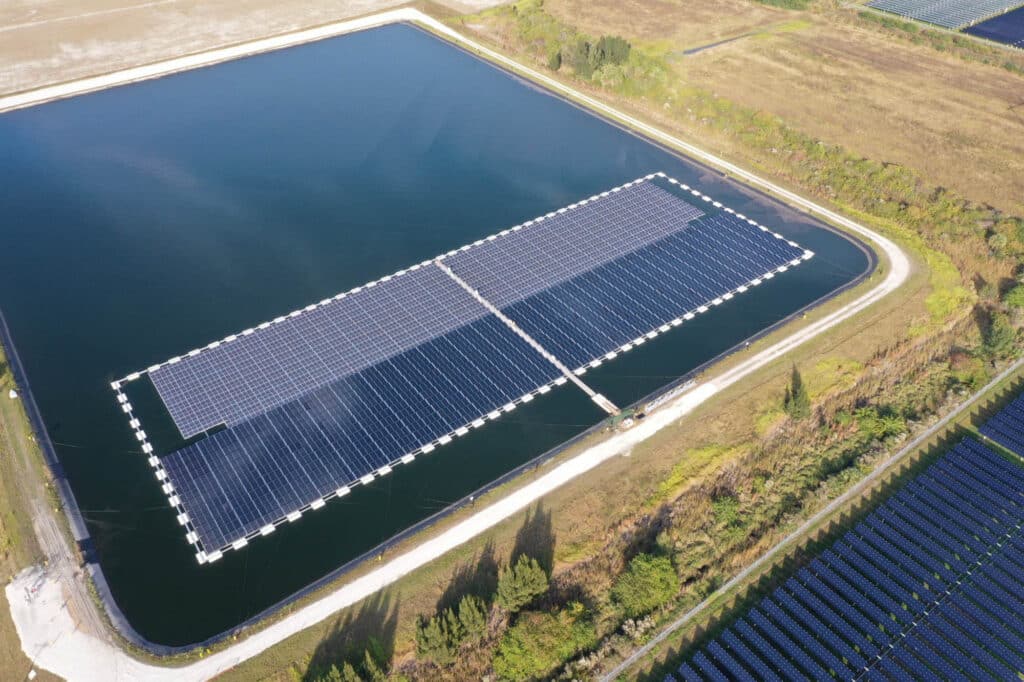The race for clean and affordable energy is heating up in today’s ever-changing business landscape. As sustainability climbs the corporate ladder, renewable solutions are no longer optional. Floating solar panels stand out with their impressive efficiency and eco-friendly footprint. By looking at solar panels vs electricity, we can see how renewables offer a powerful way to tackle both cost and climate concerns.
The Cost of Traditional Electricity
Traditional electricity primarily derives from fossil fuels such as coal, natural gas, and oil. These finite, non-renewable sources require extensive extraction, transportation, and processing. While they have reliably powered industries for decades, the challenges they face during extreme weather events and market fluctuations are becoming more apparent.
During extreme weather events power lines and infrastructure are susceptible to damage from high winds, lightning strikes, and flooding, leading to widespread power outages and disruptions in service. These events strain business operations and increase recovery costs, highlighting the need for more resilient energy solutions.
Solar Panels vs Electricity Cost: Economic Advantages of Floating Solar Panels
The cost comparison between traditional electricity and floating solar panels underscores the economic advantages of renewable energy. Traditional electricity costs are subject to the volatility of fossil fuel prices, making it difficult for businesses to budget effectively.
On the other hand, floating solar panels offer stable, predictable energy costs, providing businesses with long-term savings and reducing their exposure to fluctuating fossil fuel prices. By investing in floating solar, companies not only promote sustainability but also gain a strategic financial edge. The transition to renewable energy can promote sustainability but also provide a strategic financial advantage in terms of solar panels vs electricity cost comparison.
Environmental Benefits
The environmental consequences of traditional electricity generation are well-documented, with fossil fuel plants emitting pollutants that degrade air quality and contribute to climate change. Floating solar panels operate silently and produce no greenhouse gas emissions or air pollutants during energy generation. By utilizing water surfaces for solar panel placement, these installations can even offer environmental benefits beyond energy production. For instance, they can reduce water evaporation rates in reservoirs, mitigate algae growth, and create habitats for aquatic life, thereby promoting biodiversity conservation and enhancing local ecosystem resilience.
Solar Panels vs Electricity: Maximizing Land Efficiency and Reducing Carbon Footprint
Floating solar panels present a compelling alternative that tackles both cost concerns and environmental impact. By utilizing otherwise unused water surfaces, these installations maximize land efficiency without competing with agriculture or urban development. Their proximity to water bodies simplifies integration with existing infrastructure, cutting down on installation complexity and costs. Harnessing clean, renewable solar energy, and floating panels helps businesses significantly reduce their carbon footprint and dependence on fossil fuels. This proactive step towards sustainability aligns with corporate social responsibility goals, appealing to environmentally conscious consumers and investors alike.
Real-World Applications and Future Outlook
Numerous commercial entities in the United States have already embraced floating solar technology to bolster their sustainability initiatives. Water treatment plants have generated clean energy while optimizing water usage, agricultural farms have benefited from shade, reduced water evaporation, and renewal energy production, and many industrial facilities can harness existing resources for clean energy generation. These initiatives showcase leadership in sustainable practices and position businesses as champions of innovation and resilience in a rapidly evolving marketplace.
Looking ahead, the economic advantages of floating solar panels are becoming increasingly evident. While initial investments in solar panel installations are considerable, the long-term savings are substantial. Businesses can stabilize and potentially reduce their energy expenditures over time, safeguarding against fluctuating electricity prices and minimizing operational risks. This financial predictability enhances overall business resilience and competitiveness in a dynamic market environment.
Scalability and Flexibility
The scalability of floating solar projects offers flexibility for businesses of all sizes to customize their energy solutions according to specific operational needs and environmental goals. This adaptability not only supports immediate cost savings but also future-proofs organizations against regulatory changes and societal expectations regarding sustainability. As businesses navigate the complexities of modern energy consumption, the adoption of floating solar panels emerges as a pivotal strategy for achieving economic and environmental sustainability. By harnessing the power of the sun over water, commercial enterprises can mitigate operational costs, reduce carbon emissions, and demonstrate commitment to a cleaner, greener future. Embracing this renewable energy solution not only makes financial sense but also underscores a profound commitment to corporate responsibility and environmental stewardship in the 21st century.
Through thoughtful investment and strategic planning, businesses can pave the way toward a brighter, more sustainable tomorrow with floating solar panels at the forefront of their energy portfolios. This transformative approach not only enhances operational efficiency but also reinforces corporate leadership in driving positive environmental change. Contact AccuSolar the leader in U.S.-designed and manufactured Floating Solar PV systems to learn more about our floating solar systems.





